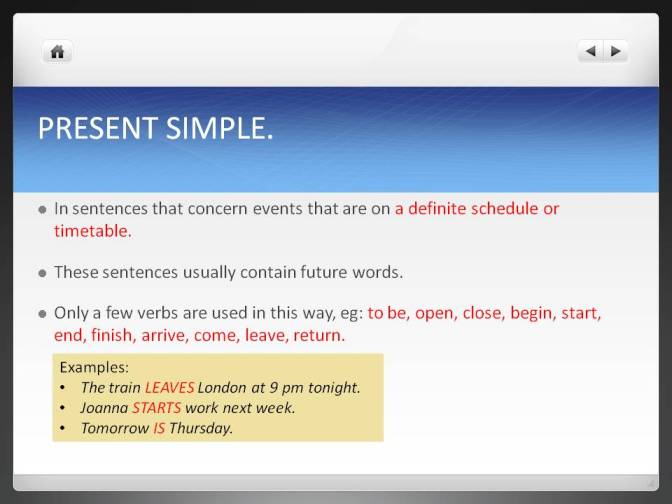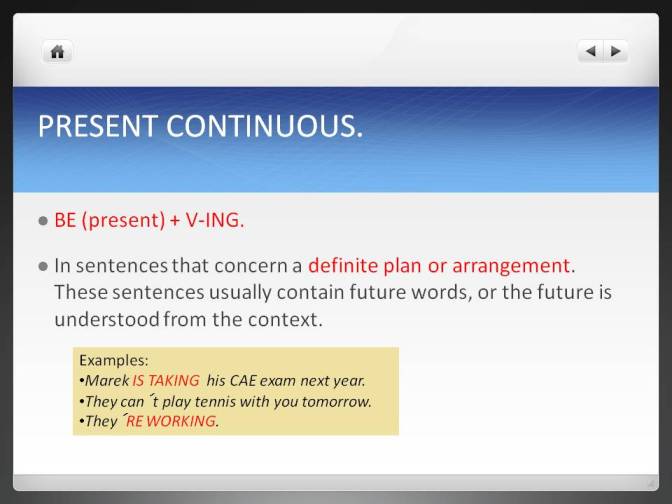2.1. Present simple & continuous for future events

Imagen de creación propia
Actividad de lectura
We use the PRESENT SIMPLE to talk about TIMETABLES, such as school schedules, TV programmes, train timetables...So, in this activity you have to use the PRESENT SIMPLE with future meaning:
a) What time ________________(the train to Oxford/leave)?
b) The film ___________at quarter to nine. (start)
c) We ____________lessons at 11:00
d) When ____________(the documentary/finish)?
e) The documentary ______________at half past nine.
f) What time ______________(we/have/the geography test)?

Imagen de creación propia
In English, we often use the present progressive (be + verb + ing) to talk about future events which have already been planned. Time words in the sentence, such as next week, next year, tomorrow, etc., make it clear that the action is not happening at this moment.
Be careful. Verbs that describe states rather than actions are not used in the progressive form. These include words like know, believe, hear, love seem own and need. Study the examples below.
I'm playing golf with some friends on Saturday(correct).
I'm needing a ride to work tomorrow (incorrect).
In the first example, the speaker is talking about an action that has been planned. The use of the words on Saturday tell us that the action is not happening now. The use of the verb need in the second example is incorrect. Need is used to show a state or condition rather than an action. Therefore, it is wrong to use it in the progressive form. The chart below shows more words that are not used in the progressive form.
This video is a funny way to learn the use of present continuous to express future:
Rellenar huecos
Read the sentences and answer the questions
- I'm going to see the Christmas tree in New York
- I'm meeting some friends there
- I'm going to watch "The Winter Tale" at the cinema
- I'm not buying Christmas gifts. There isn't enough time
Actividad de lectura
We use the PRESENT CONTINUOUS to talk about FUTURE ARRANGEMENTS. In this activity, you have to use the PRESENT CONTINUOUS to talk about the future:
a) What (do) tomorrow afternoon? I (visit) my aunt.
b) We (not/go) to the shopping centre on Saturday, we (play) tennis instead.
c) Where (Jane/go) on Saturday evening? She (not/go) anywhere. She (study) for an exam.
d) What (do) this afternoon? They (take) their driving test.
e) How (travel) to England next week? He (travel) by plane, of course!
f) What (cook) for our birthday tomorrow? She (cook) a delicious chocolate and cream cake.